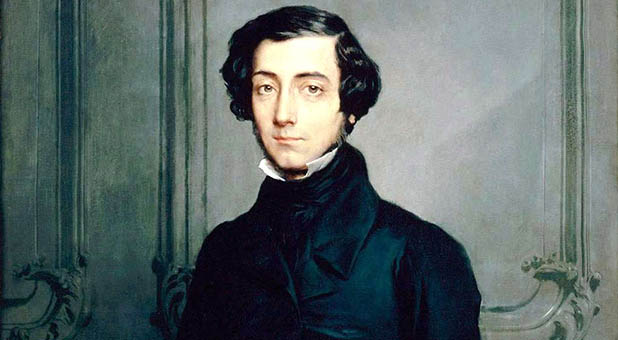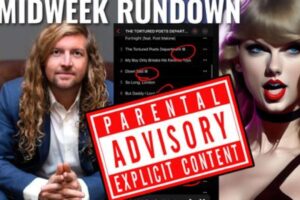Note: This is the first in a series on Alexis de Tocqueville’s famous work, Democracy in America.
When Alexis de Tocqueville authored Democracy in America, a two-volume treatment of America, he wrote it “to find there instruction by which we ourselves may profit.”
By “we,” Tocqueville was referring to his fellow Frenchmen, but although he may have written those words in 1835, we as Americans of the 21st century also have plenty to profit from Tocqueville’s wisdom, if we’ll but receive it.
In the next several posts, we’re going to walk through Democracy in America methodically and thoughtfully, examining what we might learn from one of the most influential observers of American institutions, culture, law and customs.
One thing I’ve noticed as I’ve taught and lectured on Tocqueville is that while almost everyone seems to know who Tocqueville is and why he is important, very few have actually encountered his work. There is a wide gap between people’s interest in Tocqueville—which is very great—and what they have read of Tocqueville—which is not very much.
There seem to be at least three reasons for this. First, Democracy in America is a long and dense book. Volumes I and II come in at about 305,000 words, which shakes out to be about 900 to 1,000 pages. Also, it is a 19th-century work of political science and sociology—the first major, modern work in those fields, actually—which means it isn’t most people’s idea of a bracing and charming read. Lastly, a Frenchman wrote it.
For many of us, these are tell-tale signs of a book that is asking to be prominently placed on a shelf for the sake of aesthetics. But they are also signs that we may be just as satisfied with the CliffsNotes version.
So perhaps we should consider Tocqueville afresh. Perhaps we Americans need Tocqueville’s insights now more than ever since the two-volume work first appeared in 1840. This series of posts will serve as a guide to reading his work. The book is long. It is a historical artifact. It was originally written for a French audience in the 1830s and 1840s. But it’s also about America, and as Americans, we have a special interest in what Tocqueville has to offer, even nearly two centuries after his famous visit to these shores.
The book begins with Tocqueville’s own introduction to all that follows. We cannot overstate the importance of this opening chapter, where he lays out his rationale for writing the book, as well as his goals.
Most significantly, he states his major thesis in his introduction: equality of condition, which has developed in America more fully and more peacefully than anywhere else, directs the entirety of American culture, customs, laws and government. “The more I advanced in the study of American society,” he writes, “the more I perceived that this equality of condition is the fundamental fact from which all others seem to be derived, and the central point at which all my observations constantly terminated.”
This is the central argument of the work. Everything Tocqueville writes thereafter sprouts from this soil, and it’s why this is necessary reading for us today. We are at a crossroads in our American culture, struggling with the meaning and relevance of our ideas and institutions. What does Tocqueville mean by “equality of condition”? Is democracy the same thing as equality? What role does religion play in American laws, customs, habits and government?
Tocqueville raises these and many other questions throughout his work, and we will consider how he answers them. In each post, I will mark out the section we will be considering. I will provide some summary and analysis, and will also provide some open-ended questions for you to consider. I recommend that you keep notes of your responses to the discussion questions. And I also encourage you to post your own questions and comments in the discussion area below so we can have a lively dialogue. But let’s always keep it respectful, dignified and focused on ideas.
So walk with me through Democracy in America. I’m aiming to write a post every other week, which should give us time to go through the book at a comfortable pace. We won’t treat every jot and tittle of the two-volume work, but we will consider it broadly from the beginning of Volume I to the end of Volume II.
I’m looking forward to our journey together! {eoa}
John Wilsey serves as Affiliate Scholar in Theology and History for the Acton Institute. He is also Assistant Professor of History and Christian Apologetics at Southwestern Baptist Theological Seminary.
This article was originally published at Acton.org. Used with permission.
See an error in this article?
To contact us or to submit an article






















